How A Former Bicycle Mechanic Became “The Father Of Rural Innovation In Tanzania”
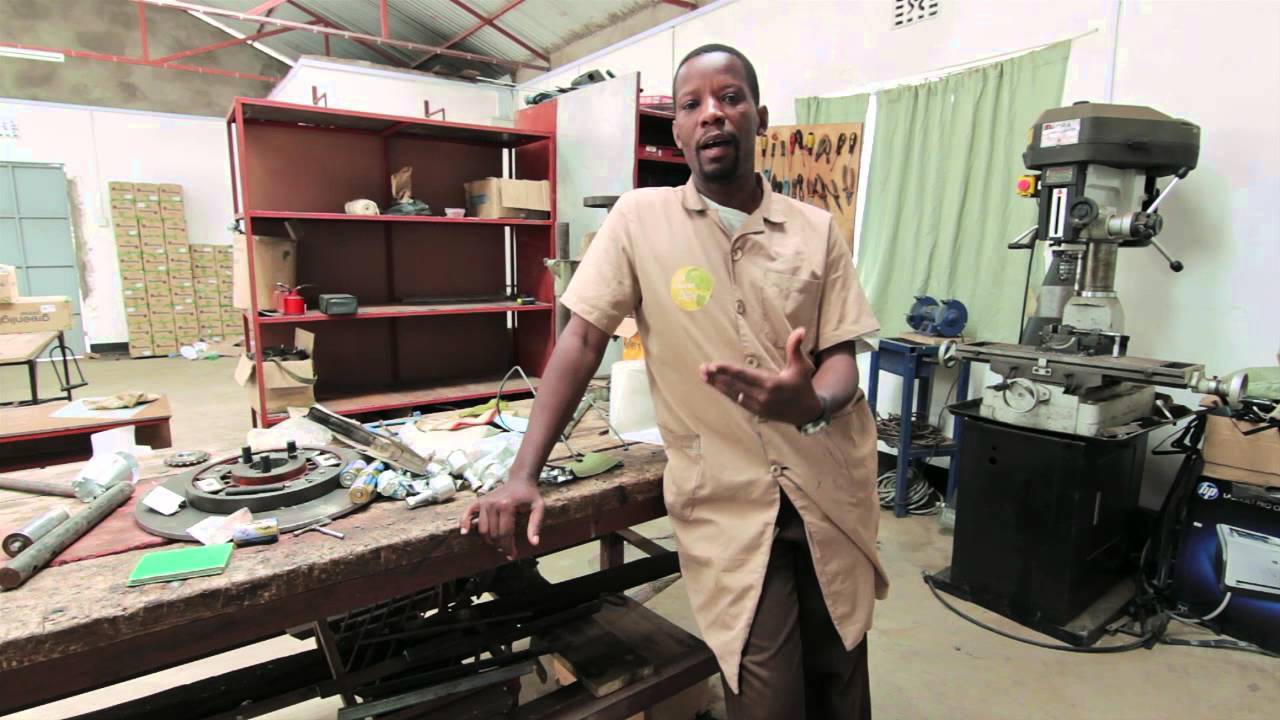
There’s a former bicycle mechanic in Tanzania whose inability to keep himself from tinkering and fiddling with stuff has turned him into something of a local hero. Bernard Kiwia is his name and these days, he’s widely considered “the father of rural innovation in Tanzania.”
Kiwia started out as a repairer of broken bicycles – something he picked up from his father who ran a small bicycle repair shack in Arusha. But nowadays, though, “serial inventor” seems like the most appropriate title.
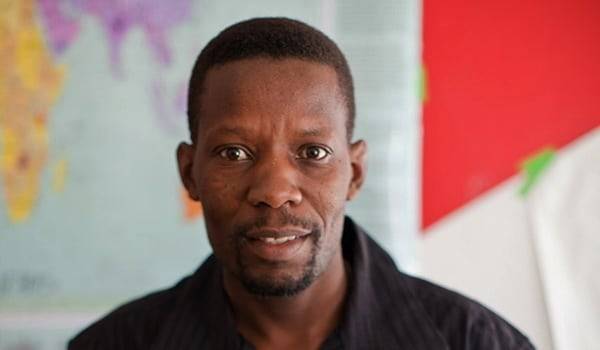
Source: gocampaign.org
Growing up, Kiwia’s curiosity and tendency to fiddle with stuff were quite obvious. He was unwilling to accept that anything was broken beyond repair, and he was all too happy to toy with scrap electronic parts.
The first glimpse of his “inner Nikola Tesla” came to the fore when he was 16 years old. Bernard Kiwa was able to design and build his own film projector from a combination of electronic parts that he had gathered from scrapyards and dumpsites.
“That was the first thing I ever made,” he recalls. “I like finding out how technology operates – and I like to have an idea and then try to make it work.”
It appears the film projector was just a snippet from the entire collection as the Tanzanian has gone on to forge a career out of putting things together, and quite literally too.
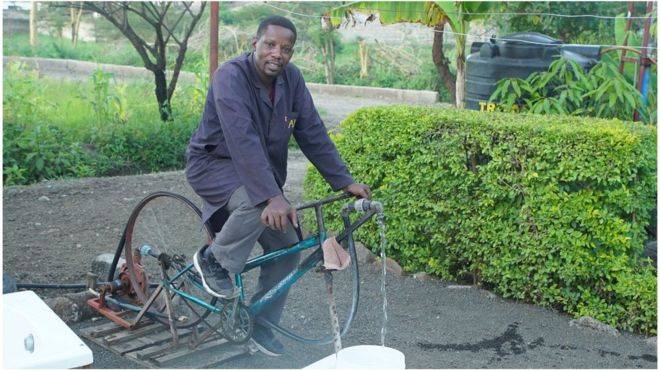
Working in his father’s workshop, Kiwia was more or less expected to just assist his pops with some pretty basic stuff. But the kid wasn’t really cut out for basic, though. He was just a bicycle mechanic up until it occurred to him that he could salvage some of the spare bicycle parts and put them to use in other ways.
He first made headlines for inventing a mobile phone charger operated by – you know it – a bicycle. Since then, he’s been inventing stuff, and he hasn’t stopped.
Now, it looks like he could whip up pretty much anything from bicycles – water pumps, hacksaws, grinding machines, and several others. And more than bicycles, he’s got a few other really cool tricks up his sleeves.
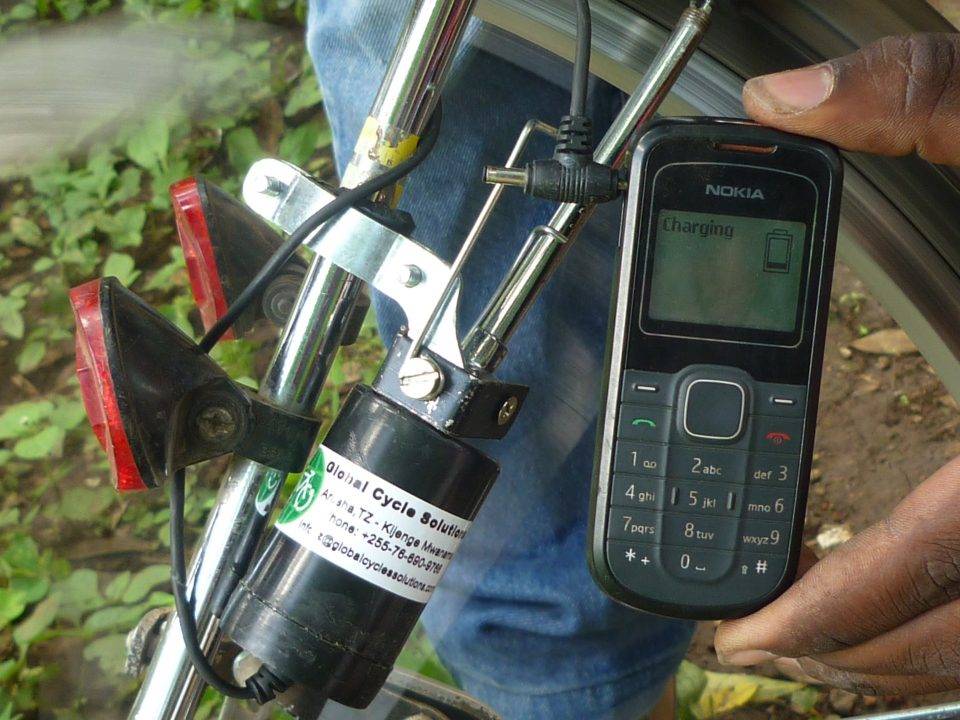
Source: designother90.org
For instance, Kiwia is also credited with the invention of a washing machine that is windmill-powered. The machine sits in his family home and it saves the household time and effort by doing their laundry through the night, which is when the wind usually picks up in their locale.
But it is not just his inventiveness that has earned him the title of “father of rural innovation” in Tanzania. His reputation has also been helped by the fact that he has created the platform for similar innovations to spring forth from equally talented individuals in his community.
Through Twende – the inventors’ workshop he started – nearly a thousand local inventors have been able to bring their ideas to life. Having only begun in his own backyard, his efforts have helped spread technological innovations across his community.
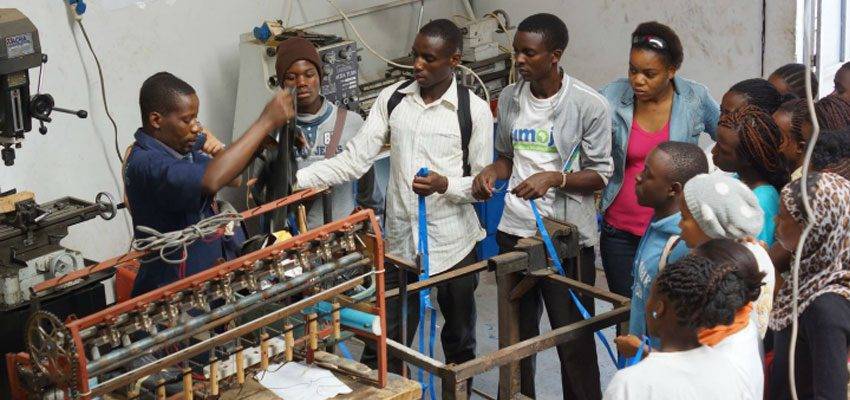
“What we want to show people is they have skills to make their own technology that they can afford, they can repair, they can find the spare parts that they need,” Kiwia says.
“With local people, their income is always small and the kind of machines you can buy in the shop are not made for these local people because they’re expensive. That’s why I’m focusing on local.”
Through the inventors’ platform, Twende, several locally-developed innovations have popped up, one of which is the “Fert-Cart” built by one of the locals, Frank Mollel. The Fert-Cart is basically an adapted wheelbarrow that is designed for quick and easy application of fertilizer and manure on farmlands – significantly cutting down on the time that would normally be required if the application was done by hand.
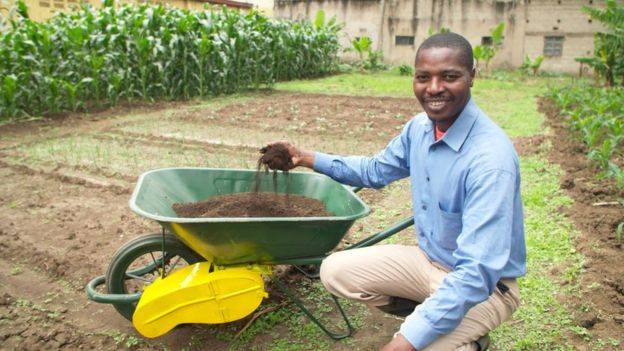
Source: bbc.com
And it doesn’t just stop at inventing – Twende is also big on entrepreneurship; making sure all the inventors in their workshops are taught good business practices and are furnished with functional business models.
In Frank’s case, for instance, the Fert-Carts are sold to farmers who have the means to purchase them, and also rented out to those who don’t have enough lands or make enough profits to be able to buy it outright.
Kiwia’s social initiative has also helped inventions like the Avocado Oil Press see the light of day. The device was built by Jesse Oljange and it is already changing lives in the community.
“Twende is a social innovation itself,” Jesse says. “You have people doing different projects in the same room. So if you have a problem you can reach out to anyone on the table and you will find the solution.”
The oil press came as a game-changer. Before the invention, extracting the oil from the crop was a very tedious process and due to the difficulty in getting a good enough market price for the effort, a large number of avocados were left to rot where they fell. The general opinion was that they weren’t worth the bother.
But since Kiwia helped Jesse transform the oil press from idea to product, the story has changed. Now, women in the local community are using the machine and are getting their
And then, there’s also the soap-cutting machine invented by a certain Magreth Omary under the guidance of Bernard Kiwia. Bringing the invention to life has made it possible for her to set up her own soap business and also share her machine with other widowed women in her community – giving them a source of livelihood as well – just one way a simple invention can make hundreds of lives better.
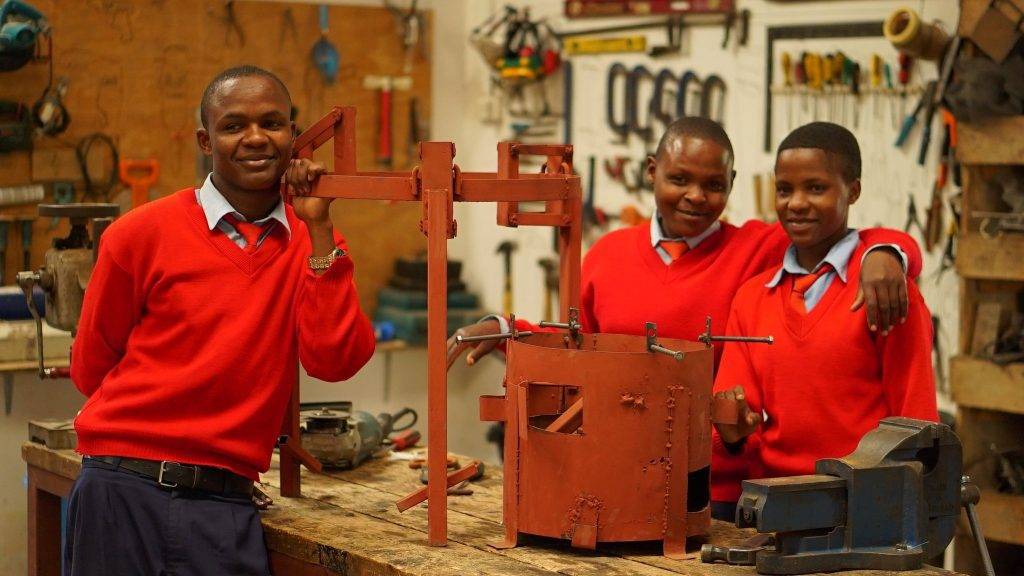
Beyond providing a workshop. tech support, and mentorship, Kiwia’s Twende is also known to provide funding access as the initiative also functions as an umbrella organisation that links up local innovators with funding opportunities.
Kiwia’s passion for creation has now morphed into a full-time job as the Director of Technology for Twende – a non-profit organisation and school for innovation in Arusha, Tanzania. Twende provides workspace, tools, and technical advice to local innovators – helping transform their ideas into useful, real-life creations.
Hundreds of high school students, smallholder farmers, and microentrepreneurs have been assisted by the workshop in building useful products from local materials – over 100 local inventions are believed to have sprung up from the stables of Twende since its inception.
As a highlight, in 2014, Twende organised a series of workshops that culminated in the International Development Design Summit – an event that attracted some 46 participants from 21 countries. The goal was to create technologies that could better lives in four rural communities in northern Tanzania. Within four weeks, the teams designed and made eight prototypes.
You’d be wrong to think the Tanzanian tech entrepreneur has hung up his work coat for good, though. Kiwia still puts in work on projects of his own. Some of his most creations include a drip irrigation kit (made out of crop bags, pipes, and sheets of plastic), and a bicycle-powered maize sheller.
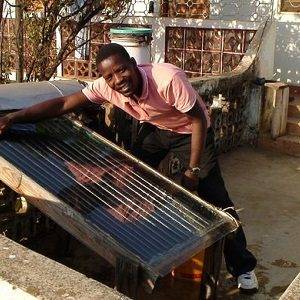
Bernard Kiwia also had a hand in the founding of AISE! (Swahili for “Wow!”) – an
AISE! is behind some of the most unusual inventions to spring up from Tanzania, including a bicycle-powered juice blender, and other more mainstream products like the solar water heater and the drip irrigation kit.
These days, he works in tandem with his partner, Jim Elsworth, and there are talks of launching a second Twende design and innovation workshop in Tanzania pretty soon.
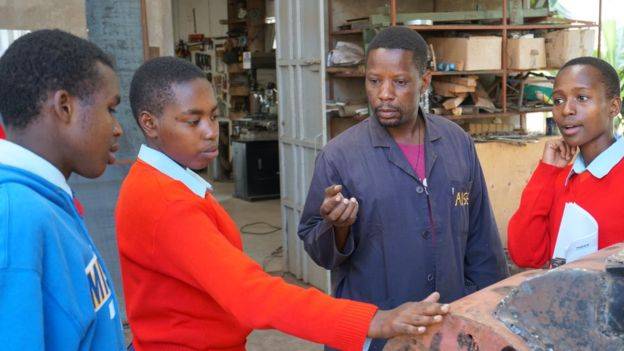
Kiwia believes there are deposits of genius in everyone and the ability to innovate is not restricted to a few ‘eggheads.’
“Take a look at the things you have around your house – some use really simple technology. People think they need special skills to make their own products. But, really, all they need to do is try,” he reiterates.
The Tanzanian inventor cum entrepreneur remains keen on making problem solvers out of ordinary people. By providing the framework that supports the development of useful technology in economically-disadvantaged areas, he’s hoping to improve lives at the grassroots.
Feaured Image Courtesy: iluminasi.com